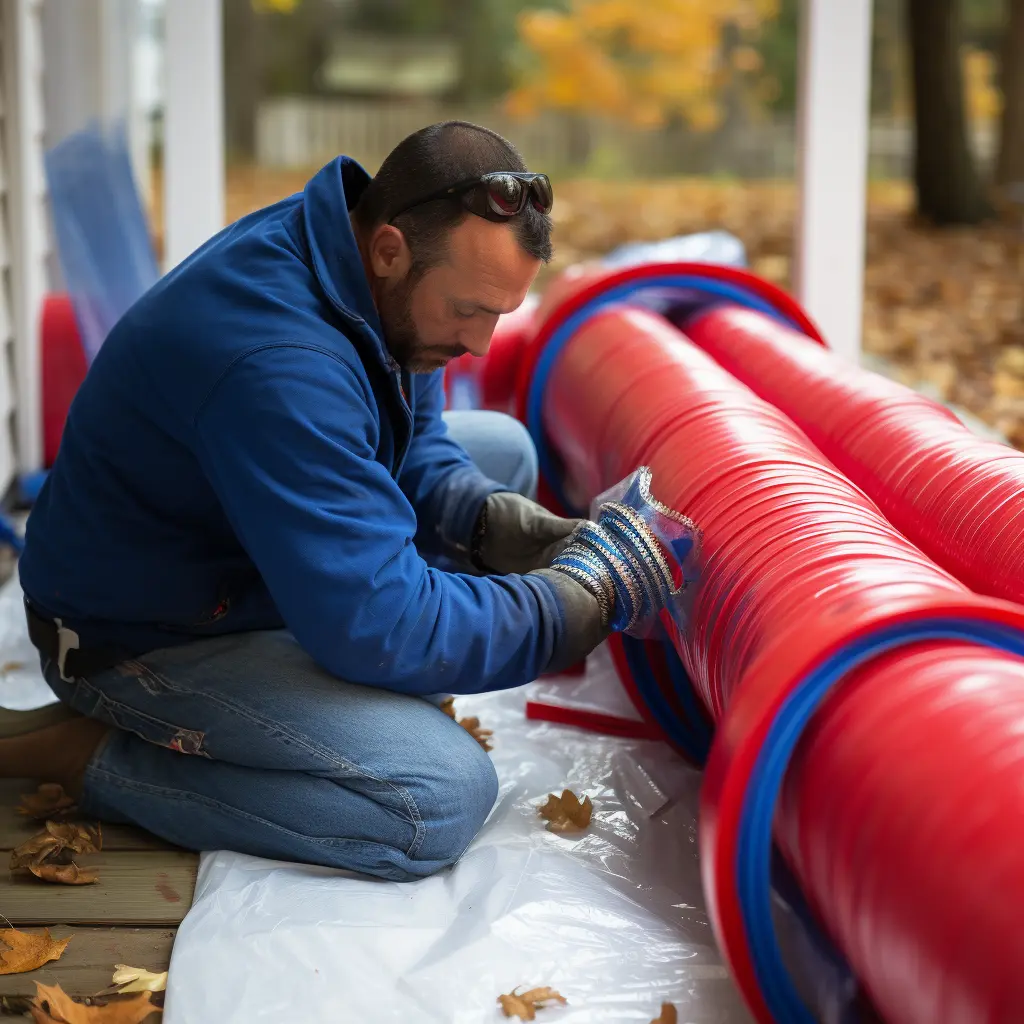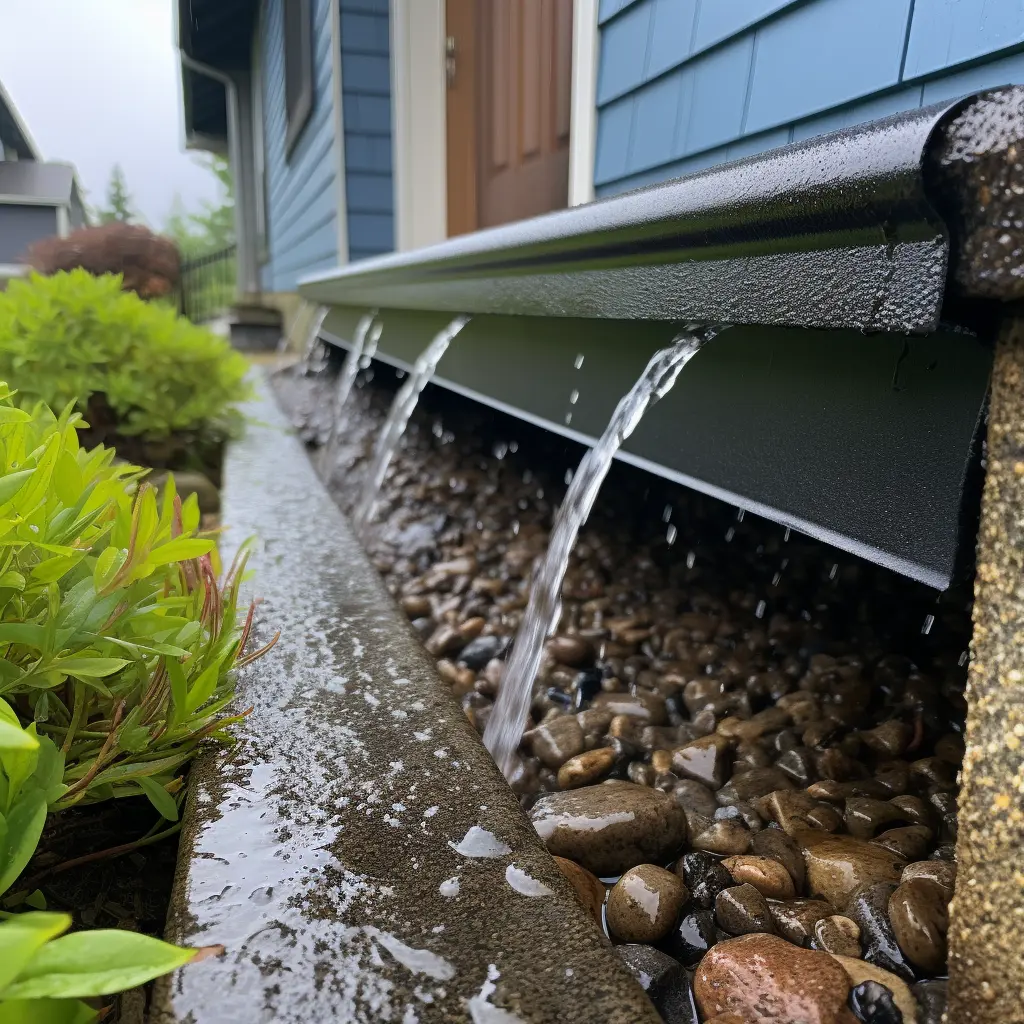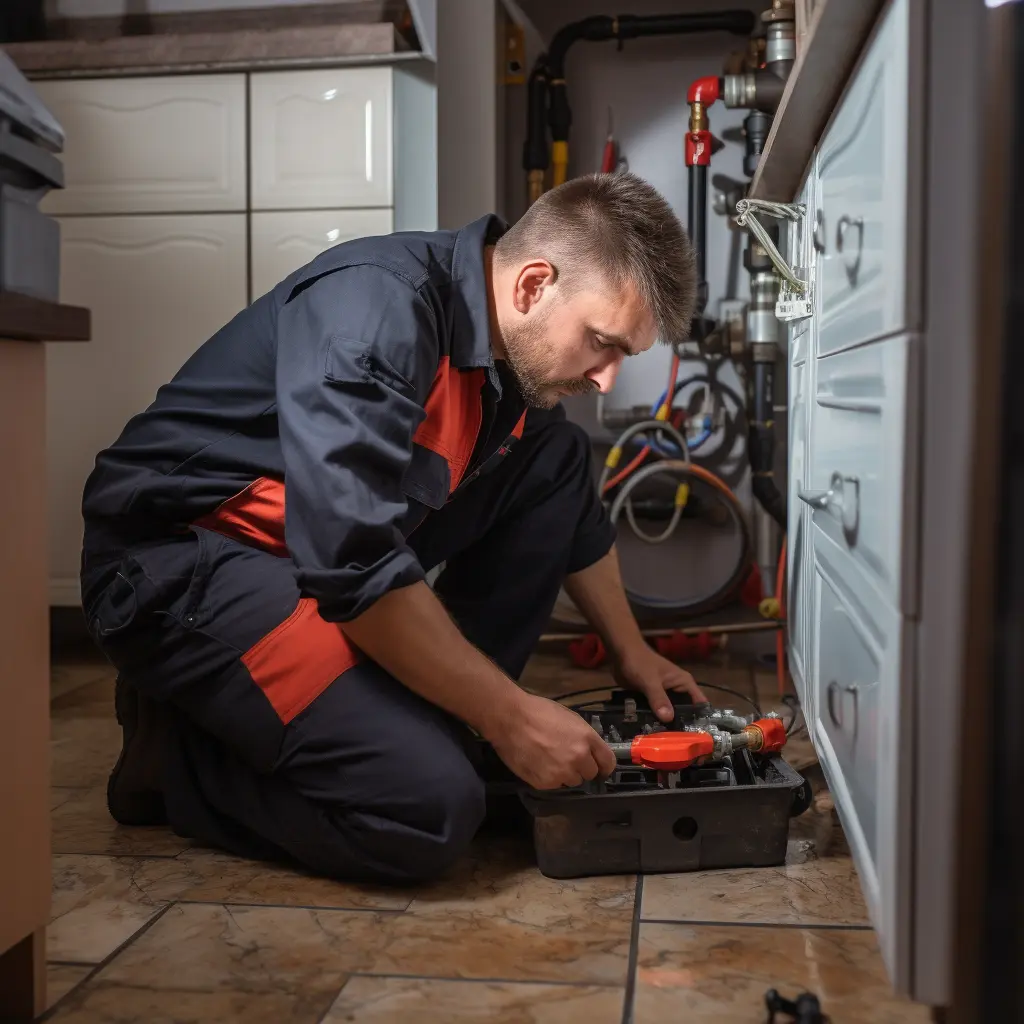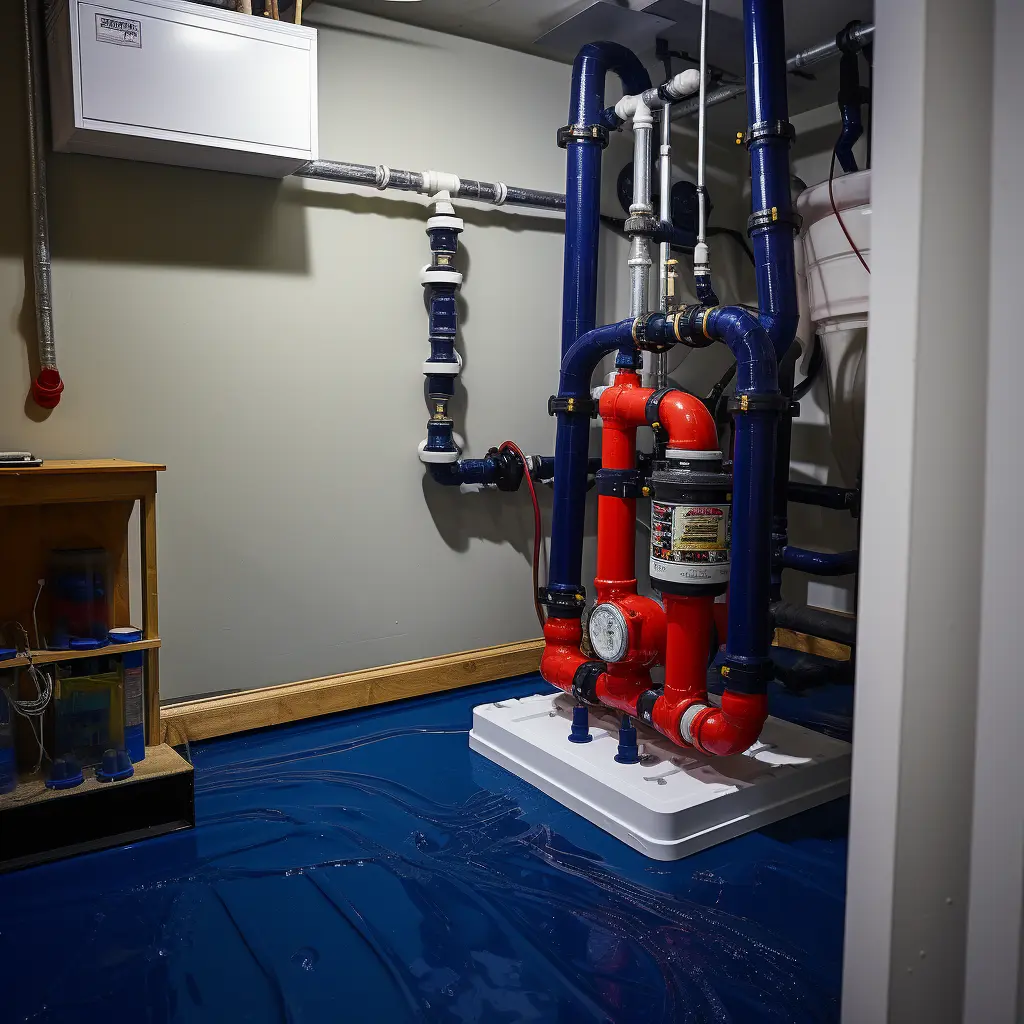Hello, Northeast Floridians! As we all know, hurricane season in our region is as predictable as afternoon thunderstorms in July. But, while we can’t control the weather, we can certainly outsmart it – at least when it comes to protecting our plumbing systems. Kingdom Based Plumbing is here with some insider tips and tricks to ensure your pipes and drains stay as calm as you are during a storm. Let’s dive in!
Understanding the Impact of Hurricanes on Plumbing
Hurricanes bring more than just heavy winds; they bring a whole lot of water and potential plumbing nightmares. From “hurricane plumbing” woes to “hurricane drain & plumbing” challenges, these storms can stress-test your home’s plumbing system in ways you never imagined.
How to protect your plumbing during hurricanes?
Imagine your plumbing system as a network of rivers. During a hurricane, these rivers can overflow, leading to back-ups and overflows. The key culprits are often overwhelmed drains and fluctuating water pressures. Understanding this is the first step in hurricane-proofing your plumbing.
The Art of Preparing Your Plumbing for a Hurricane
1. Fortifying Outdoor Plumbing Against Hurricanes
When hurricane season rolls into Florida, securing your home’s outdoor plumbing becomes as crucial as boarding up the windows. This process, often overlooked, is vital in protecting your property from the relentless force of nature. Let’s delve into the nitty-gritty of fortifying your outdoor plumbing.
The Essentials of Outdoor Plumbing Security
Turning Off Irrigation Systems
Your irrigation system, while essential for maintaining a lush garden, can become a liability during a hurricane. Here’s what you need to do:
Shut Off the Water Supply: Locate the main valve and turn it off. This prevents the system from activating during the storm, which could lead to unnecessary water loss and damage.
Drain the Pipes: Once the water is off, drain the pipes to prevent them from bursting due to pressure build-up or freezing temperatures, if applicable.
Protect the Controller: If your system has an automatic controller, disconnect it from the power source and cover it to shield it from water damage.
Covering Outdoor Faucets and Pipes
Outdoor faucets and exposed pipes are particularly vulnerable to damage. Protecting them involves:
Insulating Faucets: Use foam faucet covers, which are easy to install and effective at shielding faucets from harsh winds and rain.
Securing Exposed Pipes: Wrap exposed pipes with insulation materials. For pipes in particularly vulnerable areas, consider more robust coverings like pipe sleeves or heat tape, especially if a drop in temperature follows the storm.

The Role of Regular Maintenance
Regular maintenance throughout the year can significantly ease your hurricane preparation efforts. This includes routinely checking for leaks or damages, ensuring all components are in working order, and replacing any worn or rusty parts.
Preparing for the Aftermath
Once the hurricane has passed, it’s crucial to inspect your outdoor plumbing. Look for any signs of damage, such as cracks or leaks, and address them immediately to prevent further complications.
Conclusion: Securing your outdoor plumbing for hurricane season is akin to preparing a ship for rough seas. It requires foresight, preparation, and a thorough understanding of your system’s vulnerabilities. By taking these steps, you not only protect your property but also contribute to a safer, more resilient community.
2. Ensuring Free-Flowing Drains and Gutters During Hurricane Season
As Floridians, we know all too well the havoc a hurricane can wreak. Amidst the high winds and torrential rains, one aspect that can’t be overlooked is the state of our drains and gutters. A clogged drainage system during a hurricane isn’t just an inconvenience; it’s a disaster in the making. Let’s dive into why keeping these pathways clear is crucial and how to effectively do so.
The Importance of Clear Drains and Gutters
Averting Water Damage
Clogged drains and gutters can lead to water accumulation around your property. This standing water, if unchecked, can cause significant damage to your home’s foundation, and landscaping, and even seep into your home, causing interior damage.

Preventing Roof Damage
Gutters play a vital role in diverting rainwater away from your roof. When they’re blocked, water can back up, potentially leading to roof leaks, damage to roof shingles, and in extreme cases, structural damage due to the weight of accumulated water.
Effective Cleaning Strategies
Regular Inspection and Cleaning
The key to maintaining clear drains and gutters is regular inspection and cleaning. This doesn’t have to be a daily chore but should be part of your routine home maintenance, especially as hurricane season approaches.
Remove Debris: Use a ladder, gloves, and a suitable tool to remove leaves, twigs, and any other debris that could block water flow.
Flush with Water: After removing debris, use a garden hose to flush the gutters and downspouts, ensuring water flows freely.
Check for Repairs: While cleaning, inspect your gutters and downspouts for any signs of damage or wear and address these issues promptly.
Installing Gutter Guards: Consider installing gutter guards. These handy devices can significantly reduce the number of debris that accumulates in your gutters, making maintenance easier and more effective.
Professional Assistance
For those who are unable or prefer not to do this themselves, professional gutter cleaning services are available. They have the expertise and equipment to thoroughly clean and inspect your drainage system.
Post-Hurricane Checks
After a hurricane, it’s equally important to inspect and clean your gutters and drains again. The storm may have deposited additional debris that could cause blockages if not addressed.
Conclusion: Keeping your drains and gutters clear is a critical step in preparing for Florida’s hurricane season. It’s a proactive measure that can save you from costly repairs and give you peace of mind as the storm rages outside. Remember, a free-flowing drain and gutter system is your home’s first line of defense against the relentless rains of a hurricane.
3. Proactive Inspection and Reinforcement of Pipes for Hurricane Resilience
In the face of Florida’s hurricane season, ensuring the robustness of your home’s plumbing system is paramount. This section delves into the importance of a professional inspection and the steps involved in reinforcing your pipes to withstand the potential onslaught of a hurricane.
A Professional Plumber’s Role
A professional plumber is like a detective for your pipes, skilled in uncovering hidden problems that might not be visible to the untrained eye. Their expertise is invaluable in identifying potential weak spots or vulnerabilities in your plumbing system.
Leak Detection: Using advanced tools, plumbers can detect even the smallest leaks, which could become problematic during a hurricane.

Pipe Material Assessment: Different materials react differently under stress. A plumber can assess whether your pipes are up to the task of withstanding increased pressure and flow rates.
Pressure Test: This test ensures that pipes can handle the dynamic changes in water pressure typical during severe weather events.
Importance of Early Detection
Identifying and addressing issues before the hurricane season can prevent minor problems from escalating into major emergencies. Timely repairs or upgrades can save not only your plumbing system but potentially your entire home from water damage.
Reinforcing Your Plumbing System
Pipe Insulation and Support
Insulating Pipes: Especially for those located outside or in unheated areas, insulation can protect pipes from breaking under fluctuating temperatures.
Securing Loose Pipes: Ensuring that all pipes, especially those in vulnerable areas like basements or attics, are securely fastened can prevent them from breaking loose under the strain of heavy winds or shifting structures.
Upgrading Pipe Materials
If your inspection reveals that your pipes are made from materials prone to damage under extreme conditions, it might be wise to consider upgrading to more durable options like PEX or copper.
Regular Maintenance: A Year-Round Commitment
Maintaining your plumbing system should be a continuous effort. Regular checks, even outside of the hurricane season, can ensure that your system is always in top condition, ready to face any challenge nature throws its way.
Conclusion: A comprehensive inspection and reinforcement of your plumbing system are akin to putting armor on your home in preparation for battle. It’s an essential step in hurricane-proofing your home, ensuring that your plumbing system can withstand the rigors of extreme weather conditions.
4. Essential Defenses Against Flooding: Sump Pumps and Backflow Valves
In the battle against hurricane-induced flooding, two key players emerge as critical defenses: the sump pump and the backflow valve. These devices serve as guardians for your plumbing system, each with a unique role in protecting your home from the water-related havoc that hurricanes can unleash. Let’s explore why installing these devices is a vital step in hurricane-proofing your home and how they function to keep floodwaters at bay.
Understanding the Sump Pump: Your Basement’s Protector
The Role of a Sump Pump
A sump pump is installed in the lowest part of your basement or crawlspace. Its primary function is to detect rising water levels and pump out excess water away from your home, thus preventing flooding and the associated damage. Think of it as a vigilant guard, always ready to leap into action at the first sign of intruding water.

Types of Sump Pumps:
Submersible Pumps: These are installed within the sump pit and are designed to be watertight. They are quieter and typically more powerful, ideal for homes prone to frequent or severe flooding.
Pedestal Pumps: These have their motors mounted above the sump pit, making them easier to maintain. They are suitable for smaller sump pits and less severe water accumulation.
Considerations for Installation
Battery Backup System: Power outages are common during hurricanes. A battery backup ensures that your sump pump remains operational even when the main power is down.
Regular Maintenance: To ensure reliability, sump pumps require periodic maintenance, including cleaning the sump pit, testing the pump, and checking the battery.
The Backflow Valve: Keeping Floodwaters Out
Functionality of a Backflow Valve
A backflow valve is installed in your sewer line and acts as a one-way gate. During normal operation, it allows waste to flow out of your home. However, during flooding, when sewer systems can become overwhelmed, it closes to prevent backflow into your home. It’s akin to a bouncer, allowing the good (waste out) and stopping the bad (floodwater in).
Types and Installation
Flapper-Style Valves: These use a flap that closes when backflow pressure is detected.
Gate Valves: These offer a more robust seal and can be manually operated, providing an extra layer of protection.
The Combined Effect
Together, sump pumps and backflow valves form a dynamic duo, offering comprehensive protection against the two main water threats during a hurricane: internal flooding and sewer backflow. Installing these systems can be a significant step towards safeguarding your home against the unpredictable nature of Florida’s hurricane season.
Conclusion: Equipping your home with a sump pump and a backflow valve is like setting up a sophisticated defense system against hurricane-induced water damage. They are investments in peace of mind, ensuring that your home remains dry and secure, even as the storm rages outside.
Post-Hurricane Plumbing Checks
After the storm has passed, it’s crucial to inspect your plumbing system for any damage. This includes checking for leaks, testing your water quality, and ensuring that your sump pump and backflow valve are still in top shape.
Answering Your Burning Questions
What Happens to Plumbing During a Hurricane?
The high winds and heavy rains can overwhelm plumbing systems, leading to potential backups and floods. It’s like a surprise pool party nobody asked for.
How Much Damage Can a Hurricane Do to a Plumbing System?
It varies, but without proper preparation, the damage can range from minor leaks to major pipe bursts. Think of it as the difference between a light drizzle and a full-blown storm.
How to Make Plumbing Hurricane-Proof?
Securing outdoor plumbing, clearing drains, reinforcing pipes, and installing sump pumps and backflow valves are key steps. It’s like armoring your home against an aquatic invasion.
Conclusion: As we wrap up, remember that protecting your plumbing system during hurricane season is crucial. With these tips and a bit of preparation, you can weather the storm with confidence. Kingdom Based Plumbing is always here to help – whether it’s sunny skies or stormy weather. Stay safe, and let’s keep those pipes happy and healthy!



